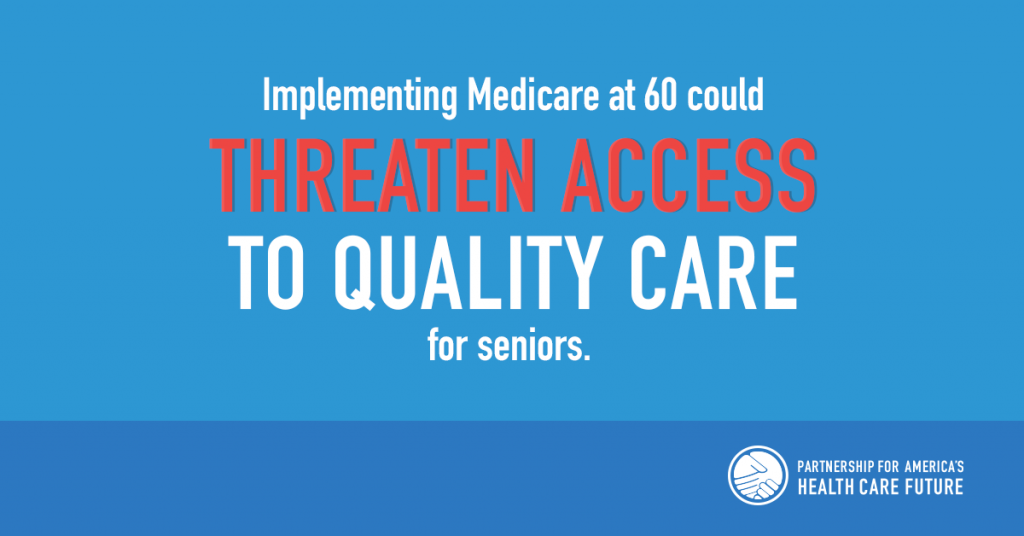A new issue brief by Lanhee J. Chen, Ph.D., Tom Church and Daniel L. Heil, with support from the Partnership for America’s Health Care Future, sheds light on the potential unaffordable costs and negative consequences of proposals such as “Medicare at 60.” The authors warn that enacting “Medicare at 60” could cause Medicare expenditures to rise significantly.

THE FACTS
The Medicare program is already at risk for today’s seniors, its trustees warn, and its Hospital Insurance (HI) Trust Fund is projected to be depleted by 2026 under current law. Chen, Church and Heil caution that enacting “Medicare at 60” in 2022 would “hasten the depletion of the trust fund” by two years compared with current projections and could cause its bankruptcy by 2024.
The proposal could also “affect the federal budget,” the authors write, by encouraging many Americans to retire earlier, thereby “reducing income and payroll tax revenue” to support vital programs.
THE TRUTH
Today, our health care system is working together to expand access to care without putting additional strain on the Medicare program seniors depend upon. The federal government just enacted the largest expansion of affordable coverage in more than a decade, and most uninsured Americans are eligible for free or subsidized health coverage. In fact, an analysis by the Kaiser Family Foundation (KFF) finds that 63 percent of uninsured Americans are now eligible for free or subsidized plans.
With our nation’s health care system providing substantial new resources to help millions of Americans get healthy and stay healthy, this is no time for one-size-fits-all proposals such as “Medicare at 60,” Medicare buy-in or the public option, all of which are new government-controlled health insurance systems that would ultimately lead to many of the same consequences as Medicare for All.
Elected leaders should instead work together to build on and improve what’s working today, where private coverage, Medicare and Medicaid work together to expand access to coverage and care.